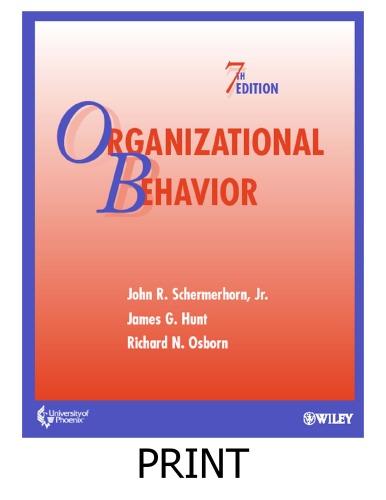Headquartered in Chicago, Amoco, formerly Standard Oil of Indiana, began as a sleepy Midwestern U.S. refining company.
Question:
Headquartered in Chicago, Amoco, formerly Standard Oil of Indiana, began as a sleepy Midwestern U.S. refining company. Historically, Amoco has had a largely domestic focus in its human resources approach. “International human resources” primarily meant the personnel policies of U.S. expatriates—American citizens who work for Amoco abroad. Until several decades ago, most of Amoco’s oil reserves were located in the United States; consequently, management had grown up with the view that most of the company’s growth would come from within U.S. borders. Today, however, nearly 80 percent of new investment dollars are being targeted toward foreign operations.
Amoco mangement believes that developing a global approach necessitates transformation in attitudes, organizational processes, and human-resource systems. Drivers of global mandates for change in HR practices are as follows: Global competition: Competitors are increasingly outside the United States (British Petroleum, Royal Dutch Shell, ELF Acquitaine, BHP). Major cash going overseas: Since most oil reserves and markets with most growth potential are now located overseas, operations will increasingly be done outside the United States. Economic shift: The United States is no longer as dominant an economic base as it has been historically. Global labor markets: A growing pool of talent will be hired beyond the U.S. labor market. There is also a need to manage cultural and political constraints on travel, work permits, type of assignments, and labor market conditions. Excessive cost of expatriations: Because of the rising cost of expatriates, Amoco must use the talent of local nationals to a greater extent. Yet, in some countries after the costs of social programs are entered into the analysis, staffing local nationals is not always necessarily cheaper. Culture and value differences of global workforce: State-of-the-art U.S. practices may not favor applicants from non-U.S. cultures (e.g., targeted selection, individual reward and appraisal systems) or may have implementation problems. Expatriation of female employees is limited in some locations. Increased pressures from foreign governments: Expectations have changed; foreign governments now demand that local nationals be employed. Increasing need to have a global presence: In many cultures, a long relationship must be developed, and evidence of staying power must be shown in order to get business; lack of presence may affect future bids in a country. Ethics: Amoco’s values will not premit it to engage in bribing or violating U.S. laws when abroad, even if it is the custom. The number one competitive pressure shaping human resource activities is the changing competition of the oil industry. Increasingly, Amoco’s competitors are foreign companies, such as British Petroleum and Royal Dutch Shell. Since most investment for new business will be spent overseas, it is essential that Amoco’s human resource systems adapt accordingly. Management must also no longer view the United States as the premier economic base. Because of the need for a global workforce, there will be significantly greater demand to integrate local nationals at all levels of an overseas subsidiary. Contributing to this view is the excessive cost of expatriations; that is, the high cost of moving U.S. employees abroad to run companies. Because of these financial pressures, Amoco must make greater use of the talent of local nationals. Yet, just hiring a great number of local nationals for managerial positions will not necessarily help a company globalize successfully; the ability to balance the parent company’s view with local needs is a critical consideration. There is still a nagging (and some might say well founded) fear in the minds of some Amoco executives that they must cautiously pick people who have allegiance to Amoco and not their local country’s government. There is the tendency to be lean and mean in terms of placement of local nationals in key positions in developing countries. As a protective staffing strategy, even in developed countries, the vast majority of critical jobs are held by U.S. expatriates. In Norway, for example, some managers complain of a glass ceiling effect, a barrier that keeps nationals from moving into key positions. And the trend seems to be spiraling downhill, despite the fact that the country’s operations are extremely successful, are stable, and mix relatively well with the United States. Even in Northern European countries, cultural differences remain that are barriers to developing a global workforce. Work and family values are different in European countries compared to the U.S. workaholic corporate norm. It is not uncommon to see Norwegian male employees leave at 3:30 in the afternoon to go pick up their children from school, a practice that is still rare for male employees in the United States. Some U.S. managers have felt that if a lot of high-quality work needs to be done quickly in a short amount of time, U.S. managers are needed to get it done.
Review Questions
1. What is a global organization?
2. What are the key business pressures driving the globalization of human resource systems?
3. What are some HR practices that would help Amoco Production manage these tensions?
Step by Step Answer:

Organizational Behavior
ISBN: 9780470076255
7th Edition
Authors: John Schermerhorn, James G. Hunt, Richard N. Osborn





